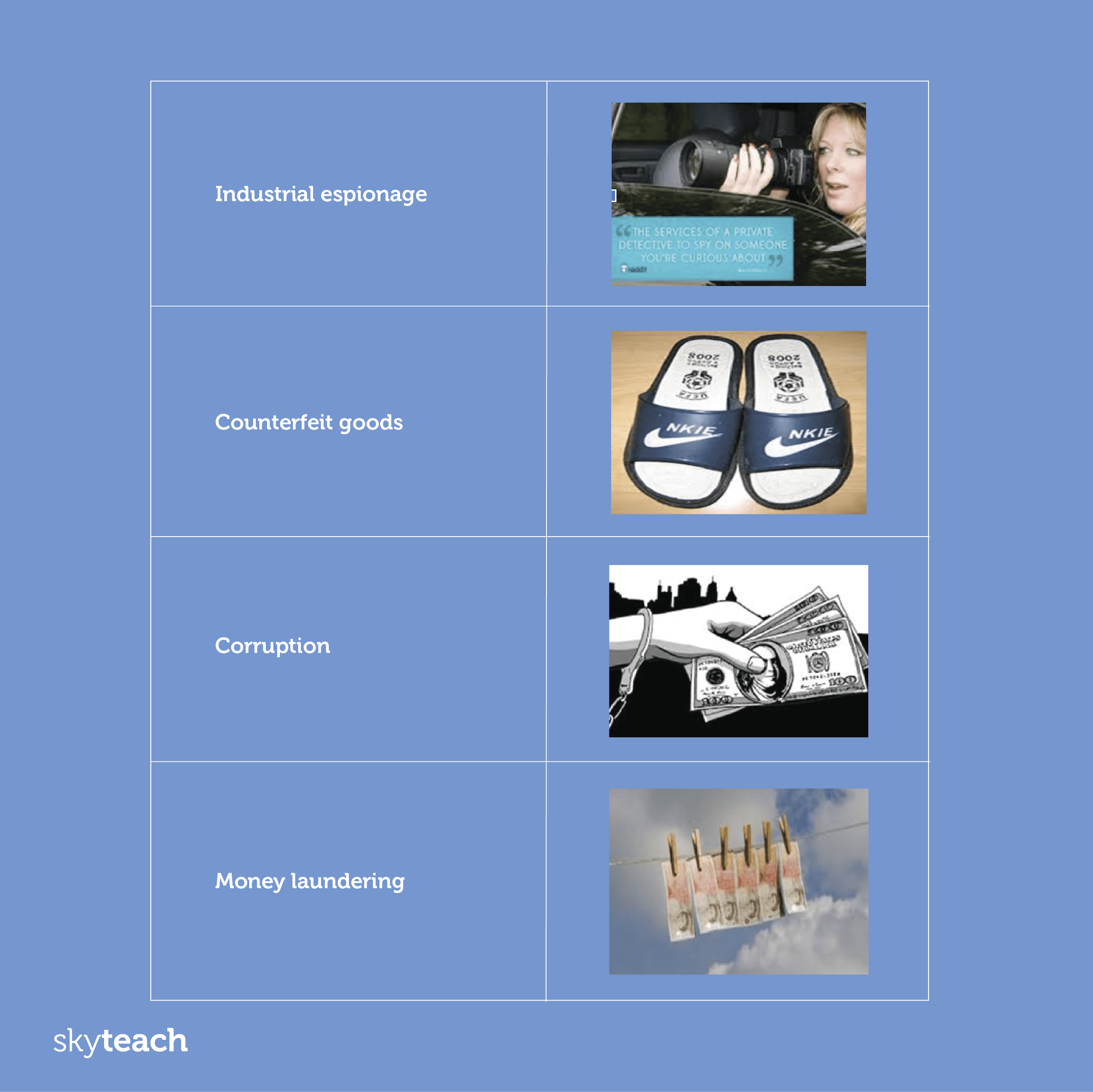Teaching Business English is of great challenge for a lot of teachers in terms of adding a fun part in the lesson and helping the students get fully engaged in it. However, Business English classes can also be equipped with great vocabulary games which provoke curiosity, creativity and critical thinking. We have sorted out some fun ways of teaching and practicing business vocabulary.
Fun ways of practicing business vocabulary:
One of the most widespread examples of teaching and practicing new vocabulary items is matching exercises (matching definitions with the new words). This tried-and-tested method can be tailored by providing students with two different sets of definitions and new words and ask to match them and stick them on a poster. It is great to assign this activity as a group work and give some award to the first-finishers.
To vary the activity, you can give students some pictures to describe first, then they should predict the words for them and just after that give out the words to match with the pictures. Though the activity is widely used for General English lessons, it can work perfectly for Business English as well.

A teacher can stick definitions and new words on the walls in the classroom. Students need to walk around, sort out new words and find their definitions. This time they are set a time limit and the group who could find more correct matching pairs will be the winner. Later on, a teacher provides learners with correct answers. This activity works best for any Business topic.
Pyramids. This game is aimed at revising vocabulary about sales, corporate culture, email language, trade. Students are asked to write down the most important ten words referring the sphere in the form of the pyramid, where on the bottom they write the most-widely used word. Afterward, posters are exchanged and the other groups add some words if they have.
Another very fun way is scrambling the word letters and asking them to unscramble the words, or divide the word into some parts and ask to sort out the words. During this activity, students learn, make fun, and compete.
Giving definitions. Students are divided into two groups, each group has a box of full of the vocabulary. They are set a time limit of 5 minutes. They pick a word from the box and explain to the rest of the group. If even one member of the group can guess, they earn a point. In the end, the teacher counts the points and announces the winner.
Ten Questions- This is another guess-the-word game that requires at least two people. One member picks a word related to business English and the other (or others) have to guess it by asking a maximum of ten “yes” or “no” (or “sometimes”) questions about it.
A sample game might look like this:
- Is it related to manufacturing? No.
- Is it related to finance? Yes.
- Is it money you save? No.
- Is it the money you spend? Yes.
- Is it money used by a business? Yes.
- Is it a budget? Yes!
The teacher can help out by giving the general field or basic idea that the word is related to before your partner starts guessing.
Students work in groups and make up continuous stories by using new words. Teacher gives the starting sentence then learners add new sentences to make up a connected story. Each student needs to come up with a sentence where he/she has used a new word. They record their stories and exchange with the other teams when the activity is over. Teams listen to each other’s stories and write out the target vocabulary items. Topics which work the best for this activity are Companies, Advertising, Marketing. The stories can vary around advertisements for a specific product, design a marketing campaign for a product or give the profile of an imaginary company.
A teacher provides students with ample of role-plays which focus on various topics discussed nearly in all Business English books. As a refinement to the main procedure students can be asked to write out those keywords which their peers use. In this way, they will be more attentive during the role-play. While discussing the topic of HR they may be involved in an Interview Panel. While discussing financial/economic vocabulary, they may come up with poster presentations about the economic/financial situation in their country and the ways to develop the sphere.
One more fun activity which is ranked top one during my lessons is the Vocabulary flight. We write a question with a keyword on a piece of paper. Then we make a paper plane and throw it to other students. When each member picks up a plane reads the question, answers it and throws back. They work in pairs. The activity goes on until all participants answer all paper plane questions.
And, of course, don’t forget about some most common activities as Crossword filling (here is a website with the help of which teachers can create their own crosswords) and Charades (the goal of the game is to guess a business-related word by having your partner act it out using their hands and other non-verbal expressions. You have to guess the word based on these non-verbal cues within a certain time frame (one to three minutes). This is a great game for improving your body language. For instance, if the word/phrase is “conference call,” you have to figure out a way to act it out—pretend to be on a call, indicate that there’s a large number of people and so on).






 Вероника Аветисян
Вероника Аветисян 
 Маргарита Аветисян
Маргарита Аветисян 


